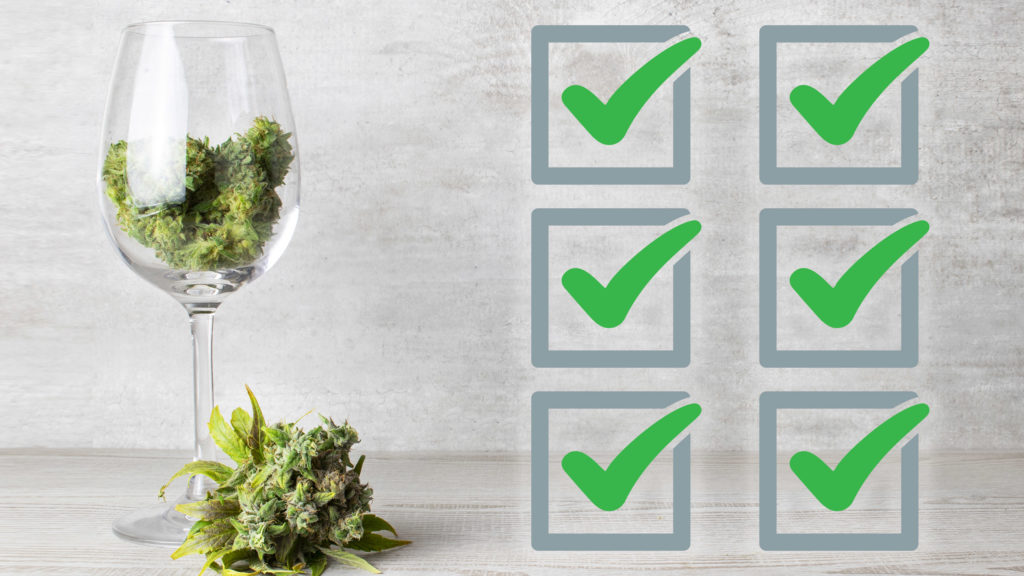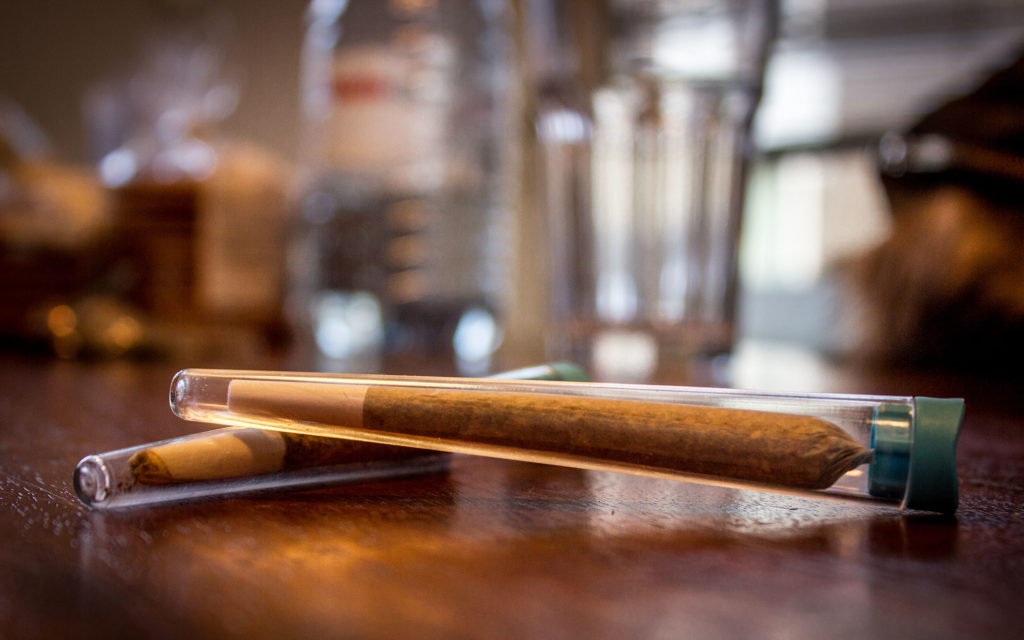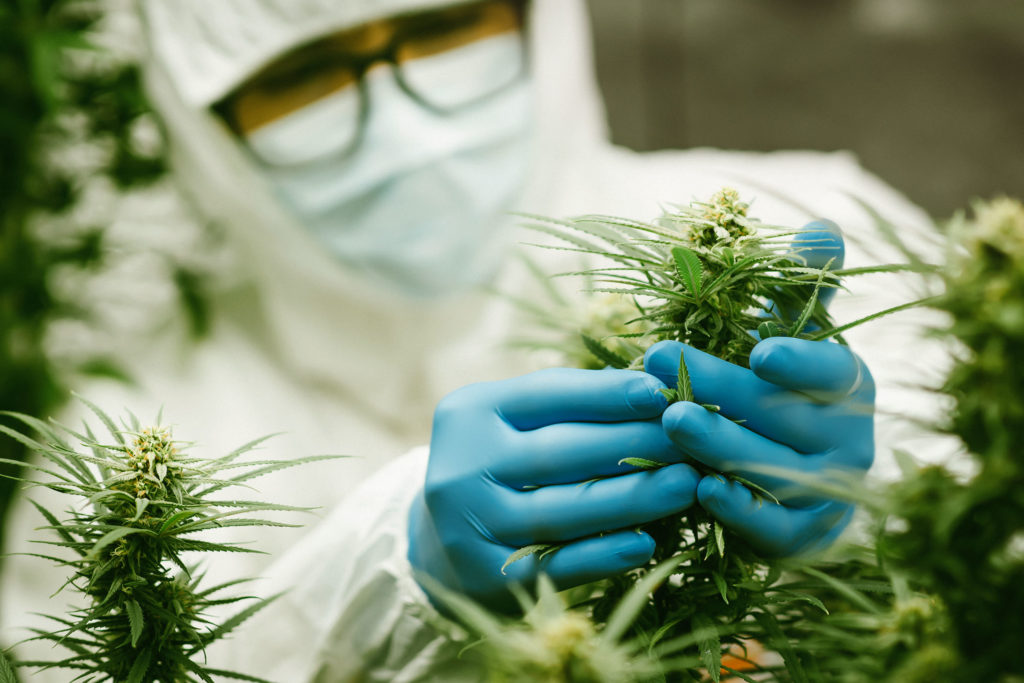Cannabis is less harmful than alcohol and it is helping more and more people to quit drinking. This is supported not only by anecdotal reports, but also by interesting research results. CBD, which has become increasingly popular in recent years, seems to have a favourable effect on the treatment of alcoholism.
Brad Pitt, Colin Farrell, and Daniel Radcliffe are all members of the Hollywood elite. They are world-famous actors. But that is not the only thing they have in common. All three have been known to suffer from alcoholism and have spoken publicly about their problems in the past.
Addiction is insidious and easy to hide, especially with legal drugs. It is therefore all the more important that well-known personalities do not shy away from going public with their struggles. They give the problem a face and do important work to help raise awareness.
Cannabis as an alternative to alcohol
In the USA alone, almost 100.000 people die each year as a result of their alcohol consumption. Quitting is also associated with many physical and mental difficulties. Benzodiazepines may help as short-term treatment but also come with their own problems, especially a great potential for addiction. Could cannabis offer an alternative?
There are many anecdotal reports of people claiming that cannabis helps them drink less or even quit drinking. Writer Kate Herzog says, “Marijuana gave me a way out of a cycle that was unbreakable. I have a good life now, a life I am proud of and generally enjoy.
Normally, the only way to recover from addiction is total abstinence. Even a glass of champagne at your daughter’s wedding can make you flip out, pick a fight, throw up on the table or weep in public. But I’m not completely sober, not even from alcohol. These days I drink occasionally. But saying no to the second drink will always be hard for me, so I usually say no to the first drink.
Instead, I grab a pipe and inhale deeply. I know some think marijuana ruins lives, but I also know it may have saved one.”
Stories like Kate’s are plentiful. But what does the science say? Is cannabis suitable as a substitute for alcohol? Before we can try to answer this question, we have to define the situations where one substance is suitable to replace another.
Positive research results

Meenakshi Sabina Subbaraman is considered an expert in the field of addiction research. In 2014, she published an article in the journal Alcohol and Alcoholism in which she takes a closer look at all the research results related to cannabis and alcohol addiction. She lists seven criteria for assessing the suitability of a substitute medication:
- It should reduce alcohol consumption and the harm associated with it.
- It should not cause harm or at least be less harmful than alcohol.
- The potential for abuse should be less than that of alcohol.
- It should be able to replace alcohol and should not be used together with alcohol.
- It should be safer than alcohol in case of overdose.
- It should not heighten the effect of alcohol, especially if either substance is overdosed.
- It should offer significant benefits in terms of health and economy.
Research results are promising; apart from the sixth and seventh criterion, all criteria are met or partially met by the use of cannabis.
Why do people replace alcohol with cannabis?
In 2009, the Harm Reduction Journal reported on an anonymous survey conducted by the Berkeley Patient’s Group (BPG), a medical cannabis dispensary in Berkeley, California.
Out of the 350 patients surveyed, 40% said they had replaced their alcohol consumption with cannabis; 65.8% had replaced their prescribed medication with cannabis; and 57.4% said they took cannabis instead of medication because it better treated their symptoms. Finally, 26% of patients said they used cannabis as a substitute for illicit drugs.
While this is only a small study among patients who gained their insights through self-medication, their numbers are nonetheless meaningful. Fortunately, research is also providing more and more evidence to confirm these findings.

For instance, a 2013 study was conducted based on the collaboration of several research institutions such as the Universities of Kentucky and Maryland. It cautiously suggests that cannabidiol (CBD) has a favourable effect on the treatment of alcoholism.
The effect can be summarised as follows: the human brain consists of approximately 100 billion neurons, or nerve cells, that communicate with each other. This communication facilitates various tasks such as memory retention, muscle control, or the transmission of information from the light receptors in the eyes.
Excessive alcohol consumption leads to neurodegeneration, which means that there is a progressive loss of the structure or function of the neurons, and even their death. This results in behavioural and thinking disorders which probably contribute to alcoholism becoming chronic and the likelihood of relapse.
The study found that CBD may restore the neuron structure. Through this mechanism, the behavioural patterns of addiction might also be reduced.
Cannabis shows potential as a substitute medicament for alcohol

In conclusion, it can be said that cannabis helps certain people reduce their alcohol consumption. According to Meenakshi Sabina Subbaraman, definitive statements can only be made after further studies in this field. She says:
“While more research and improved study designs are needed to better identify the extent and impact of cannabis substitution on those affected by AUD (alcohol use disorder), cannabis does appear to be a potential substitute for alcohol.” Subbaraman acknowledges that “cannabis is both safer and potentially less addictive than benzodiazepines and other pharmaceuticals that have been evaluated as substitutes for alcohol.”
- Disclaimer:This article is not a substitute for professional medical advice, diagnosis, or treatment. Always consult with your doctor or other licensed medical professional. Do not delay seeking medical advice or disregard medical advice due to something you have read on this website.










